The past year has been a challenging time not just for our students but also for parents, having to navigate through the process of online learning through an extended but, more worryingly, an uncertain amount of time.
While The International School of Kuala Lumpur (ISKL) constantly focuses on the well-being of our students, there can be a sense of loss for the children beyond the syllabus, which might include the lack of physical and social interaction with teachers and friends, and increased difficulty in concentration due to the lines between bedroom and “classroom” now being one and the same.
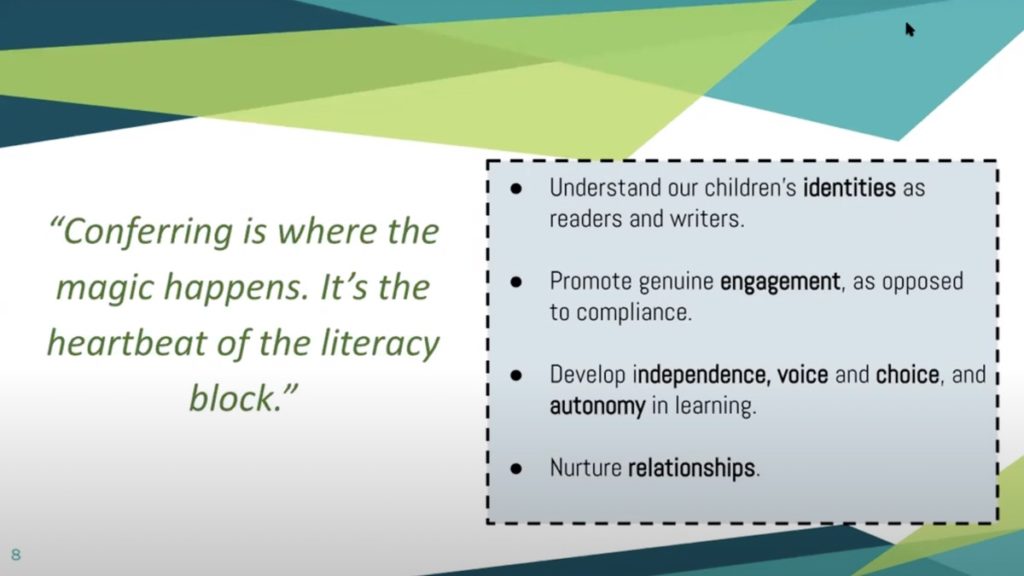
For parents, juggling between the role of parent and a feeling of responsibility to help make the learning experience as normal as possible during this challenging time can be overwhelming. In a recent workshop, “Conferring: Supporting Learners at Home” by ISKL’s Elementary Teaching and Learning as Learning Specialist/Instructional Coach, Mr. Joel Jr. Llaban noted that with the right tools and the dispositions and mindsets for learning, online learning might be the silver lining for parents to understand the identities of their children as unique individuals, which contribute to their children’s diverse, growing and ever-evolving potential as readers and writers.
What is my role?
“First of all, it is important to remember that in your role as a learning coach, it is not your job to be a content expert giving direct instructions,” says Mr. Llaban. Stress not, and do not be overcome by the pressure to know all the answers that your child may have. “Instead, view your position as a model learner for your child through mindsets, behaviors, and disposition for learning and to provide emotional support through the whole process.” In a nutshell, the coachee owns the content; and you, as the coach, owns the process.
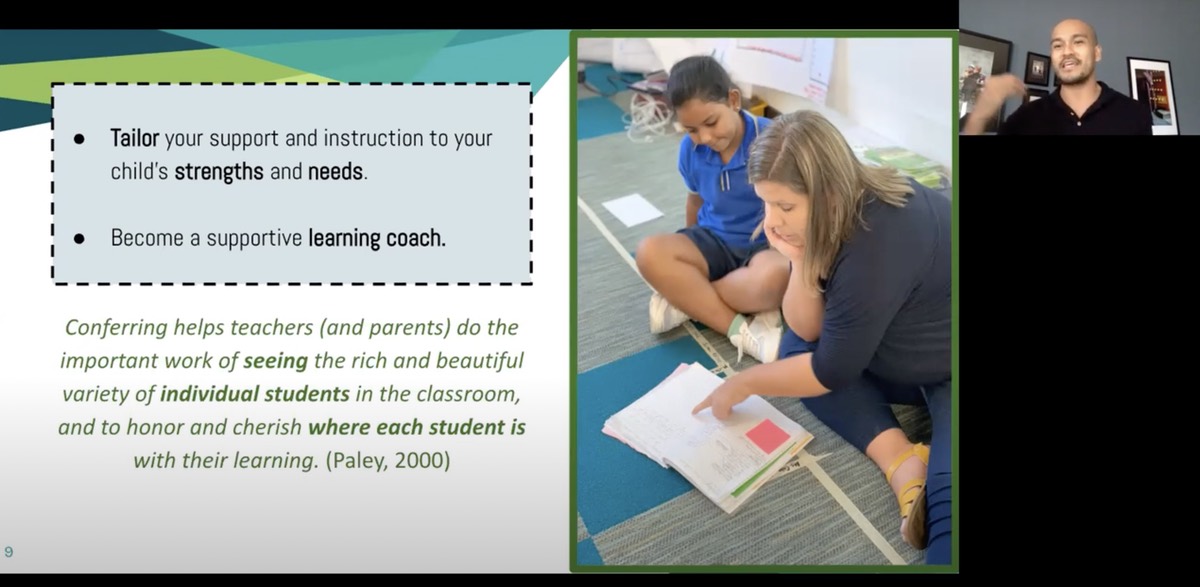
This can be done through Conferring, which, if done with care, connection, and commitment, will encourage and develop an attitude of personal accountability for learning, a crucial skill in developing future leaders. Some of these include taking risks, setting goals, being flexible, staying curious, making connections, uncovering complexities, and many other dispositions for lifelong learning.
“Conferring is where the magic happens. It’s the heartbeat of the literacy block.”—(Morrell 2012; Freire 1998)
Why should we confer?
Teachers use the conferring method to identify the different types of learning styles based on their students’ diverse identities, which include cognitive and socio-emotional, cultural, and linguistic identities, among many others. Each student may process learning contents and concepts differently, and it’s important not to assume they all engage in the same way.
At home, consider conferring as an opportunity for relationship-building with your child. Here are six reasons why Conferring is essential:
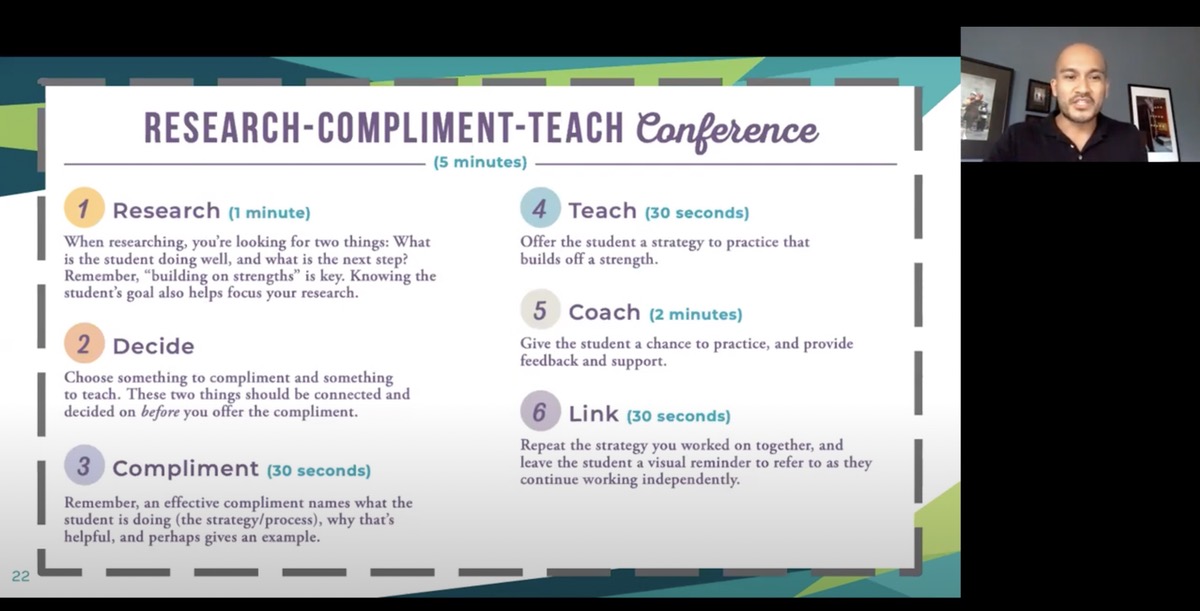
- Understand our children’s identities as readers and writers
Do they prefer graphic novels to purely written texts? Do they find it exciting to read non-fiction to fiction? What subjects do they enjoy reading about? Conferring is an opportunity for relationship-building with your child. It is a gift of time when we engage with them on a personal level and learn more about their interests, successes, and challenges; as well as their perceptions about reading, what they find complex as writers, or the most compelling stories and ideas they wish the world to hear! Here, we get to see our children’s identities unfold before our very eyes, and what a beautiful experience that is! - Promote genuine engagement, as opposed to compliance
When they can learn at their pace, they learn as they can comprehend versus simply rushing to finish at the same pace as their peers. Here, the motivation becomes intrinsic for them to engage in a process.Suggestions: There is power that stems from when children engage at their own pace and flow. We promote genuine engagement as learning coaches by guiding them to set intentional learning goals. We support them as they navigate the complexities of knowledge and concept development and provide them autonomy in crafting their understandings. Consequently, they take ownership of their learning because not only are they involved in the process, but they are also learning something that matters to them. - Nurturing Relationships to Develop independence, voice and choice, and autonomy in learning
Identifying how they feel and expressing their challenges is the first step in identifying problems, making finding a solution easier rather than just giving up at feeling overwhelmed from their frustrations.Developing independence and autonomy does not mean children do everything on their own. It is a continuous partnership between families, teachers, and children. It is a process that includes deep work in relationship building, creating a condition for children to feel safe and courageous to express their feelings, goals, successes, and challenges. It also involves a continuous conversation around process, problem finding, and problem-solving. These and more are hallmarks of future-ready learning.
- Tailor your support and instruction to your child’s strengths and needs
The data we can gather from listening to the thinking of our children allows us to tailor our questions, support, guidance, instruction to support our children’s strengths and needs. This gives you an opportunity to amplify their strengths and needs. We individualize our support because we see them as unique readers and writers navigating through their pathways for learning. - Become a supportive learning coach
Listening is the first step to understanding the contours of their thinking. With Conferring, it’s really about meeting your child where they are, in their learning journey.
The beauty is that Conferring does not stop once school reopens; it is an excellent opportunity for parents to empower their children in their learning process and continue to nurture lifelong readers and writers.For more on having effective conversations with your child, learn The Art of Conferring: Understanding Your Child’s Unique Identity.
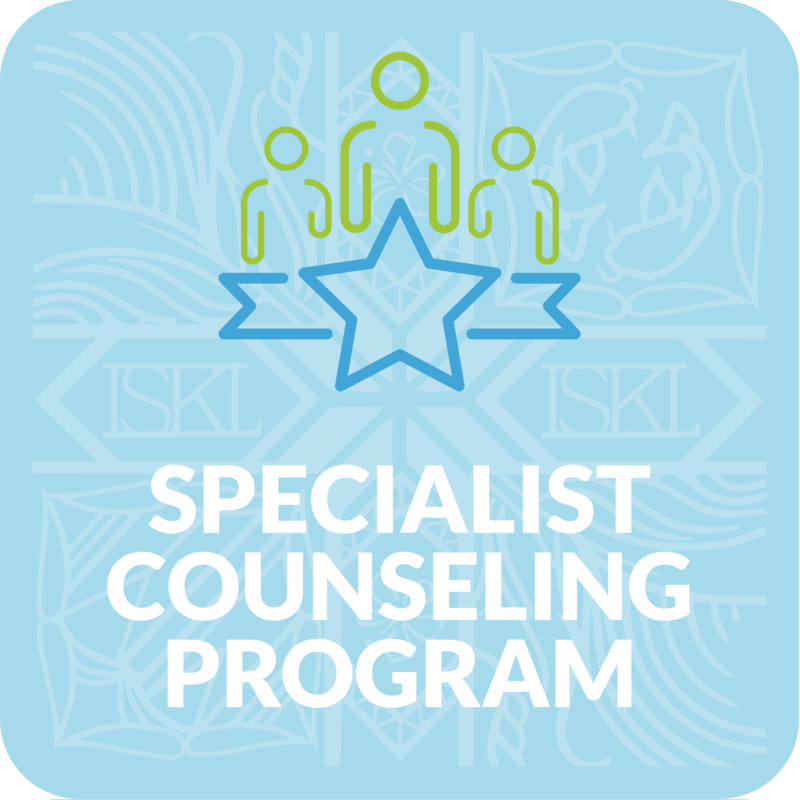
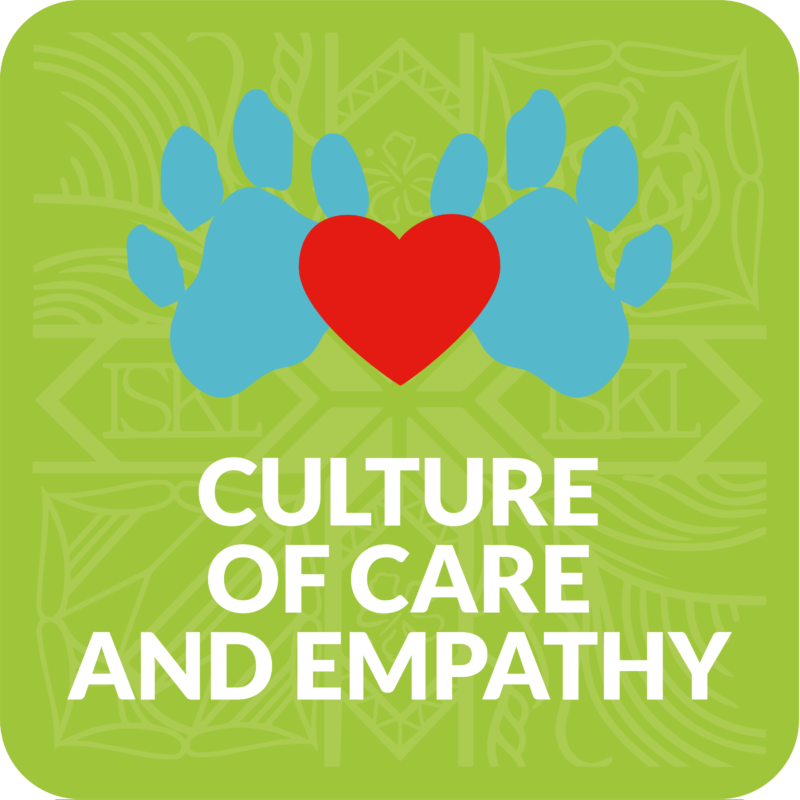
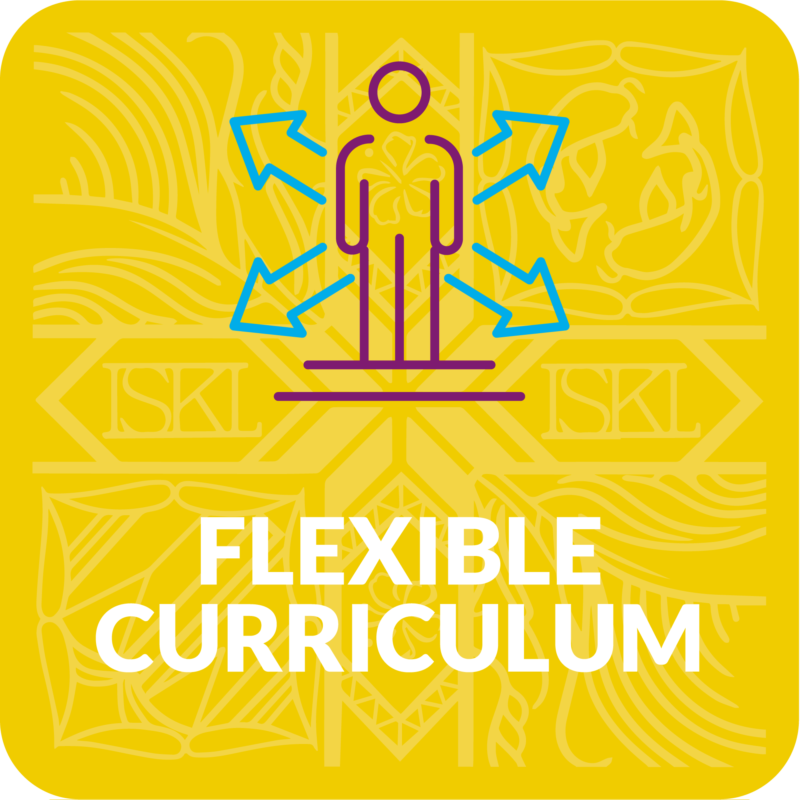
About Joel Jr Llaban
Joel Jr Llaban works in the ISKL Elementary Teaching and Learning as a Learning Specialist / Instructional Coach supporting students, teachers and parents. Prior to ISKL, Joel worked in international schools in Brussels, Beijing and Cebu. He holds a Masters degree in International Education Administration and a Certificate of International School Leadership from the Principals Training Center. Joel also serves as part of teams evaluating and accrediting schools for CIS and NEASC. He currently serves on the Council of International School’s board committee on Diversity, Equity, Inclusion and Justice. He thinks it’s the kind, connected, committed, and caring people at ISKL that makes this school truly special.

